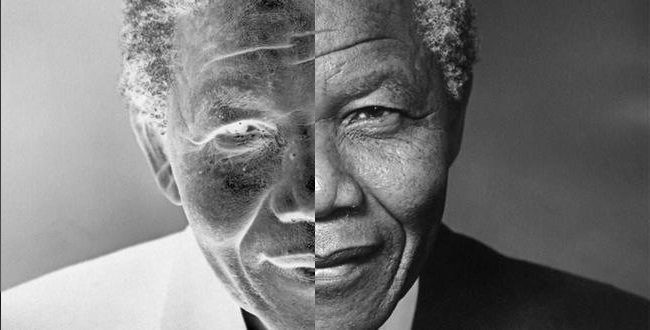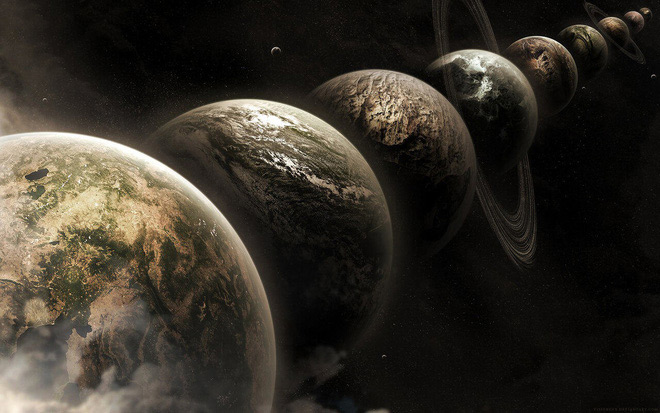The strange psychological effect entitled
What is the effect of naming the first president of South Africa? And it turns out, a lot of people have encountered it without knowing it.
Have you ever owned an extremely clear, extremely detailed memory array, and you believe in it for a very long time. But then you realize, what have you thought you remember right now?
If ever, it seems that you have experienced a strange psychological phenomenon called Mandela Effect. The effect is named after the first democratically elected South African president Nelson Mandela.

In 2010, the majority of netizens thought that Nelson Mandela was dead, but it did not happen until 2013
But why is Nelson Mandela? The name was put in 2010, when many people on the internet said they remembered that Nelson Mandela had died in prison in the 1980s. Some even claimed that they had seen clips of Mandela's funeral. But in fact, Nelson Mandela was released in 1990 and just died in 2013.
Fiona Broome - an expert in the study of anomalies - is the one who created this name. Broome uses it to refer to the phenomenon of confusion with collective size. And then, a series of different examples were raised by netizens.
The most famous example is the queen's miraculous mantra in the fairy tale "Snow White and the Seven Dwarfs". In English, many people confuse this sentence as "Mirror, mirror on the wall", but it is actually "Magic mirror on the wall".
Accompanying the examples are various hypotheses, including somewhat mythical . myths. Broome, for example, refers to the "parallel universe" doctrine, assuming that people at some point may have come to another universe, met another reality, and made a mistake.
Others believe Mandela has somehow . changed the past, maybe with a time machine.

The theory of parallel universes is used to explain this phenomenon.
What does science say?
Psychologists believe that this phenomenon stems from imperfections, coming from remembering very familiar events but has never happened. In addition, the reason may be because the available memories are bent by a number of factors, and then merged with the current information, forming a false memory.
In modern life, these false memories turned out to be extremely popular. That is the reason causing endless arguments that both sides think they remember correctly.

Misleading right from the source of the information can make the memory wrong.
One of the reasons for false memories is the "source monitoring errors" effect - when people confuse real and virtual events. Jim Coan - American psychology professor who points out this effect. He demonstrated that the effect was very easy to achieve with a small experiment on his own family.
Specifically, he joined the members to review their childhood memories. But among the events, there was one thing . that was, it was about his brother getting lost in the mall.
However, not only his brother believed in this event, but also added some "real" details. And then when Elizabeth Loftus - another psychologist - applied this method to a larger-scale experiment, 25% were "trapped."
The error is because of "wrong remember"?
For a more thorough explanation of the Mandela effect, many examples have been given, including the process of "brief information about arranging errors" of humans. That is, people tend to simplify the information collected to create memories. It helps us understand more, but at the same time makes it easier for the memory to be wrong.
Frederic Barlett, a psychiatrist, presented this issue in a book published in 1932. At that time, he read to some of the Canadian folk tales named "War of the Ghosts." ". As a result, listeners tend to ignore unfamiliar information, transforming them into simplified forms for easier understanding.
From there, false information may appear. And if false information is repeated on a regular basis, and then spread more widely, it can cause widespread misunderstanding. For example, Princess Diana's accident video in 1997 was just a re-edged version, but many people thought it was real material.
In short, it can be said that Mandela's effect is behind many false memories that we mistakenly believe every day. The misinformation comes from the selection process and the wrong thinking of the brain when receiving information only.
- Discover interesting psychological effects
- Explain why people are
- Understand your mind through an interesting psychological test by an Austrian doctor
- Psychological test Hermann Rorschach
- The effect makes people 'not know crab soup cooked with jute vegetables' easily sympathized
- Strange effect when you face robots that are too similar to humans
- The most 'inhumane' psychological experiment in history and the controversial facts behind
- The affective syndrome and tricks spread six psychological traps that made love impossible to escape
- 6 psychological effects when washing hands
- Play famous brands used to
- There is an extremely dangerous psychological syndrome
- 9 strange things when spreading other people's behavior
 'Fine laughs' - Scary and painful torture in ancient times
'Fine laughs' - Scary and painful torture in ancient times The sequence of numbers 142857 of the Egyptian pyramids is known as the strangest number in the world - Why?
The sequence of numbers 142857 of the Egyptian pyramids is known as the strangest number in the world - Why? History of the iron
History of the iron What is alum?
What is alum?